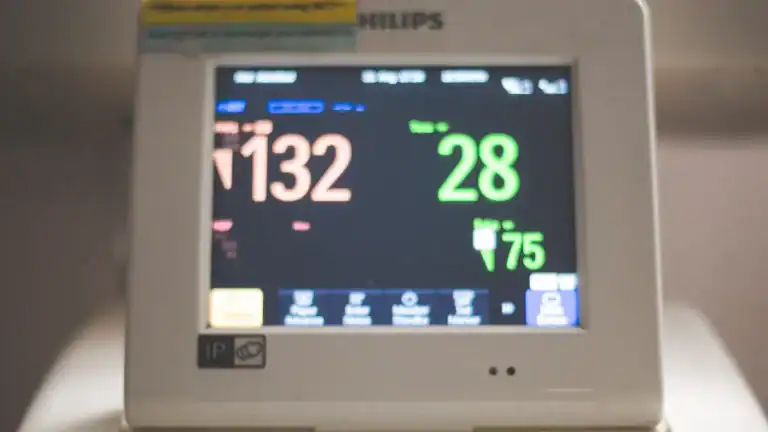
Phlegm causes significant discomfort and frustration. You want to clear your airways and feel better. This blog provides quick, effective home remedies. You will discover accessible solutions. Many simple household items offer relief. These practical remedies are often within your reach. You can find comfort and ease your symptoms.
Key Takeaways
Warm saltwater gargles and steam inhalation quickly help clear phlegm and ease chest congestion.
Staying hydrated with warm liquids like tea or broth thins mucus, making it easier to cough up.
Natural remedies such as honey, herbal teas, and eucalyptus can soothe coughs and help expel mucus.
Prevent phlegm buildup by using humidifiers, avoiding irritants like smoke, and elevating your head while sleeping.
See a doctor if your phlegm lasts a long time, gets worse, changes color (like red, black, or pink), or comes with severe symptoms like trouble breathing.
What is Phlegm
Phlegm’s Purpose
Phlegm is more than just an annoyance. Your body produces it for a very important reason. It is a type of mucus. This mucus acts as a crucial defense mechanism in your respiratory system.
It traps harmful germs, irritants, and particles. These things can enter your body when you breathe. Phlegm then helps to move them out. Tiny hairs, called cilia, beat and push the phlegm. This action helps transport trapped toxins out of your lungs. You might also cough to expel it. This protective barrier keeps your lungs healthy. Without enough mucus, your lungs become vulnerable to injury.
Common Causes Of Excess Phlegm
Sometimes, your body makes too much phlegm. This can lead to discomfort and a feeling of congestion. Several medical conditions can cause this overproduction.
Chronic Obstructive Pulmonary Disease (COPD): This lung disease causes ongoing inflammation. It leads to too much mucus production and a frequent cough.
Bronchiectasis: Your airways become permanently wide. This makes it hard to clear mucus. It causes buildup and infections.
Cystic Fibrosis: This genetic disorder creates thick, sticky mucus. This mucus builds up in your airways. It makes breathing difficult.
Asthma: Your airways become inflamed and narrow. This causes wheezing and shortness of breath. It also leads to too much mucus.
Influenza and Respiratory Infections: The flu and common cold often increase mucus production. Your body fights the infection.
Pneumonia: Infections fill your lung air sacs with fluid. This causes a cough and breathing problems.
Chronic Sinusitis: Your sinuses stay inflamed for a long time. This causes mucus to drip down your throat. This is called postnasal drip. It leads to irritation and congestion.
Fast-Acting Home Remedies

You want quick relief when phlegm builds up. These home remedies offer fast solutions. They help you feel better right away.
Warm Saltwater Gargle To Relieve Chest Congestion
A warm saltwater gargle is a simple yet powerful remedy. It helps relieve chest congestion. You mix about half a teaspoon of salt into eight ounces of warm water. Stir until the salt dissolves completely. Then, you gargle the solution for 30 to 60 seconds. You spit it out afterward. Do this several times a day.
This method works in several ways. A saline solution draws excess fluid from inflamed tissues in your throat. This reduces swelling. It also helps loosen thick mucus. This makes it easier for you to expel irritants like allergens, bacteria, and fungi. Saline gargling can limit the spread of viruses and secretions from your nose to your lungs.
It improves the moisture in your throat lining. This helps your body clear mucus more effectively. The salt water also cleanses your throat mechanically. It washes away debris and crusts.
Steam Inhalation To Get Rid Of Mucus
Steam inhalation, or steam therapy, helps you get rid of mucus. The warm, moist air loosens mucus in your nasal passages, throat, and lungs. This makes it easier for you to cough it up. You can do this in a few ways.
One method involves a bowl. You fill a large bowl with hot water. Drape a towel over your head and the bowl. You then breathe in the steam deeply for 5 to 10 minutes. Be careful not to burn yourself. Another easy way is to take a hot shower. The steam from the shower fills the bathroom. You simply breathe in the moist air. Inhaling steam can also ease irritation and reduce swelling in your nasal passages. This helps manage a stuffy nose and reduces congestion.
Hydration With Warm Liquids
Staying hydrated is crucial when you have phlegm. You should increase fluids throughout the day. Warm liquids are especially helpful. They thin your mucus, making it easier to clear.
You can drink liquids like clear broths or soup. Decaffeinated tea is also a good choice. Warm fruit juice or lemon water with honey also works well. These fluids help your body stay hydrated. They also help loosen congestion. Chicken soup, in particular, may help with colds and excess mucus. Some research suggests it can slow the movement of white blood cells that fight infection. Unsweetened herbal teas and low-sugar broths are also effective for sinus hydration.
Honey For Soothing Relief
Honey is a natural remedy known for its soothing properties. It can help calm a cough and reduce throat irritation. You can take honey straight from a spoon.
For adults and children aged 1 year and above, honey is safe and effective. If you have a cough, a single dose of 2.5 mL of honey before bedtime can help. Studies show that honey can improve cough frequency and severity. It also helps you and your child sleep better. For example, a study with children showed improvements after they received 10g of eucalyptus, citrus, or labiatae honey before bedtime.
Saline Nasal Spray Benefits
A saline nasal spray or rinse can provide significant relief. It helps clear your nasal passages and reduces post-nasal drip. This helps with congestion.
These sprays add moisture to your nasal passages. This is very helpful in dry environments. They thin and loosen mucus. This makes it easier for you to clear out allergens like pollen, dust, and pet dander. The gentle mist of salt water washes away irritants. This leads to clearer and more comfortable nasal passages. This process reduces congestion by keeping your nasal passages moist and free from excess mucus. It makes breathing easier for you. These remedies offer quick relief.
Natural Expectorants And Mucus Thinners

You can find relief from phlegm with natural expectorants and mucus thinners. These remedies help your body expel mucus over a longer period. They offer sustained comfort.
Herbal Teas For Respiratory Support
Herbal teas provide excellent respiratory support. They help thin mucus and soothe your airways. You can choose from several beneficial herbs.
Licorice Root (Glycyrrhiza glabra): This powerful expectorant thins mucus. It calms irritated respiratory tissues.
Mullein (Verbascum thapsus): Mullein loosens and expels mucus. It also soothes your respiratory tract.
Elecampane (Inula helenium): This herb stimulates expectoration. It reduces mucus buildup, especially for chronic bronchitis or wet coughs.
Thyme (Thymus vulgaris): Thyme helps loosen mucus. It also has antimicrobial properties.
Eucalyptus (Eucalyptus globulus): You can use eucalyptus in teas or infusions. It opens airways and helps expel mucus.
Peppermint (Mentha × piperita): Peppermint contains menthol. Menthol thins mucus and soothes your respiratory tract. It helps with nasal and chest congestion.
Holy Basil (Tulsi): Holy Basil helps thin mucus. You can boil its leaves in water to make a tea.
Ivy Leaf (Hedera helix): Ivy Leaf widens airways. It stimulates mucus release. You can make a tea from the dried herb or leaf.
Eucalyptus For Chest Congestion
Eucalyptus is well-known for its respiratory benefits. It helps clear airways and relieve chest congestion. The main component in eucalyptus essential oils is 1,8-cineole, also called eucalyptol. This component has anti-inflammatory properties. It acts as an expectorant. This means it helps you cough up mucus. For effective action, the leaf oil should contain about 70–85% eucalyptol. Eucalyptus oil works like menthol. It interacts with receptors in your nasal lining. This helps reduce symptoms like nasal congestion.
Research supports using cineole for respiratory issues. One study showed that 200 mg of cineole capsules, taken three times daily for 14 days, had a steroid-like effect. It opened airways for asthma patients. Eucalyptus products also reduce cough linked to bronchitis. Eucalyptus essential oil may even have antiviral properties. Its compounds, citronellol and eugenol, showed rapid antiviral action against influenza A in lab tests.
You must use eucalyptus oil safely.
Inhalation: Use 12 drops of eucalyptus oil per 150 ml of boiling water. Or, use a 1.5% V/V solution. This is 1 tablespoon (15 ml) per liter of warm water. You can repeat this up to three times daily.
Topical Application: Use ointments with 1.3% V/m eucalyptus oil. Apply a thick layer up to three times daily. This is for adults and children over 12 years.
Safety First: Do not apply eucalyptus oil to the face, especially the nose, of babies and young children. Avoid using it during pregnancy and lactation without medical advice. Human data is not available for these groups.
Always perform a patch test before using any essential oil. This checks for allergies or negative reactions. Always dilute essential oils with a carrier oil. Examples include almond or jojoba oil. Do not use them directly from the bottle.
Once you know it is safe, you can inhale eucalyptus oil in several ways:
Diffuser: Add a few drops to a diffuser. Follow the device’s instructions. This disperses the scent around your room.
Steam Inhalation: Add a few drops of essential oil to a bowl of hot water. Inhale the steam.
Tissue or Handkerchief: Place a few drops on a clean tissue or handkerchief. Hold it near your face to inhale. Avoid pressing the tissue directly to your skin. This prevents rashes from undiluted oil.
Topical Application: Apply diluted essential oils to pulse points. Inhale the vapors released from your skin.
Apple Cider Vinegar Methods
Apple cider vinegar (ACV) is a popular home remedy. Many people believe its acidity helps break down thick mucus. This makes sinus drainage easier. This mechanism could offer relief from pressure and congestion. These are common with sinusitis.
Proponents suggest ACV can thin mucus secretions. This makes them easier to expel. This could benefit people with excessive mucus production. Examples include sinus congestion and respiratory infections. However, you should approach these claims with caution. They come from anecdotal reports. They lack strong evidence-based data or clinical research. Scientific support is very limited.
Spicy Foods For Mucus Thinning
Spicy foods can help thin mucus. Capsaicin is the compound that makes foods spicy. It interacts with sensory C fibers in your nasal lining. These fibers are very sensitive to capsaicin. When capsaicin stimulates these fibers, it triggers a local reflex. This reflex happens within your nasal mucosa.
It leads to the release of neuropeptides. These include C-peptide, CGRP, and VIP. These neuropeptides are involved in your body’s response to irritation. They can influence mucus production and drainage. This helps clear your airways.
Other Natural Juices And Syrups
Several natural juices and syrups can act as mucolytics. They help break down and thin mucus.
Pineapple: Pineapple contains bromelain. This enzyme breaks down proteins. It helps clear congestion.
Guavas: Guavas disinfect your throat, respiratory tract, and lungs. They help you get rid of mucus.
Citrus fruits: Oranges, lemons, grapefruits, and limes are rich in vitamin C. Vitamin C thins mucus.
Ginger: Ginger contains enzymes that destroy mucus. You can chew on a piece of raw ginger. You can also make ginger tea.
Cayenne pepper: Cayenne pepper contains capsaicin. This compound aids in thinning mucus.
Onions and Garlic: These contain the bioflavonoid quercetin. Quercetin helps break down mucus. It also helps flush out phlegm.
Preventing Phlegm Buildup
You can take steps to stop phlegm from building up. These actions help you maintain clear airways. They reduce your discomfort.
Using Humidifiers For Air Moisture
Dry air can irritate your respiratory system. It makes mucus thicker. This makes it harder to clear. You can use a humidifier to add moisture to the air. This helps keep your nasal passages and throat moist.
Moist air also thins your mucus. This makes it easier for you to cough it up or blow it out. Place a humidifier in your bedroom. You will breathe easier while you sleep. Clean your humidifier regularly. This prevents mold and bacteria growth.
Avoiding Irritants And Allergens
Certain substances can trigger your body to produce more phlegm. You should identify and avoid these irritants and allergens.
Indoor allergens include dust mites, pet dander, fungi, and pests.
Outdoor allergens consist of pollens and fungal spores.
Viruses like cold viruses spread through airborne droplets. They cause excessive mucus.
Indoor pollutants such as cigarette smoke, pet fur, mold, and some household chemicals lead to buildup of mucus.
Environmental pollutants like car exhaust, wood smoke, and industrial smoke can also trigger mucus overproduction.
You can reduce your exposure. Keep your home clean. Use air purifiers. Avoid smoking. Stay indoors when pollen counts are high.
Elevating Head During Sleep
Sleeping flat can cause mucus to pool in your throat. This leads to post-nasal drip and more phlegm. You can elevate your head during sleep. This physically reduces post-nasal drip and phlegm accumulation.
Gravity helps drain mucus from your nasal passages. You can use extra pillows or a wedge pillow for support. This prevents mucus from pooling in your throat. Even a slight elevation, around 30 degrees, can significantly alleviate sinus congestion overnight. An elevation angle of approximately 30 to 45 degrees is sufficient. It facilitates natural mucus drainage. Avoid excessive elevation. This prevents neck and shoulder pain.
When To Seek Medical Advice
Home remedies offer great relief. However, you must know when to seek professional medical help. Your body sometimes needs more than home care.
Persistent Or Worsening Phlegm
You should pay attention to your phlegm. If it lasts a long time, or if it gets worse, you need to see a doctor. Home remedies help with temporary discomfort. They do not always fix underlying problems. If your phlegm does not improve after a few days, or if it increases, contact your doctor. This ensures you receive proper diagnosis and treatment.
Changes In Phlegm Color
The color of your phlegm can tell you important things. Certain colors mean you need medical evaluation.
Red, black, or brown phlegm: These colors need immediate medical attention. They can signal blood or a serious infection.
Pink and frothy phlegm: This color, especially with shortness of breath, sweating, or chest pain, requires an immediate emergency room visit. It can indicate heart failure.
Black phlegm: If you have black phlegm, especially with a weakened immune system, contact your doctor immediately.
Green phlegm: If green phlegm comes with breathing difficulties, chest pain, or coughing up blood, you need urgent consultation with a doctor.
Consistent other colors: If you consistently experience other colors of phlegm, contact a doctor for advice.
Accompanying Severe Symptoms
Sometimes, phlegm comes with other severe symptoms. These symptoms mean you need immediate medical attention.
Difficulty breathing, such as wheezing, gasping, or shallow breaths.
Fever or chills.
Shortness of breath.
Chest pain.
If you experience any of these symptoms with your phlegm, do not delay. Seek medical help right away. Your health is important.
You now have many effective and accessible home remedies for phlegm. Try these solutions for quick relief and improved comfort. We explored immediate relief methods, natural expectorants, and preventative measures. Remember to seek professional medical advice if your symptoms persist or worsen. Your health is important.




